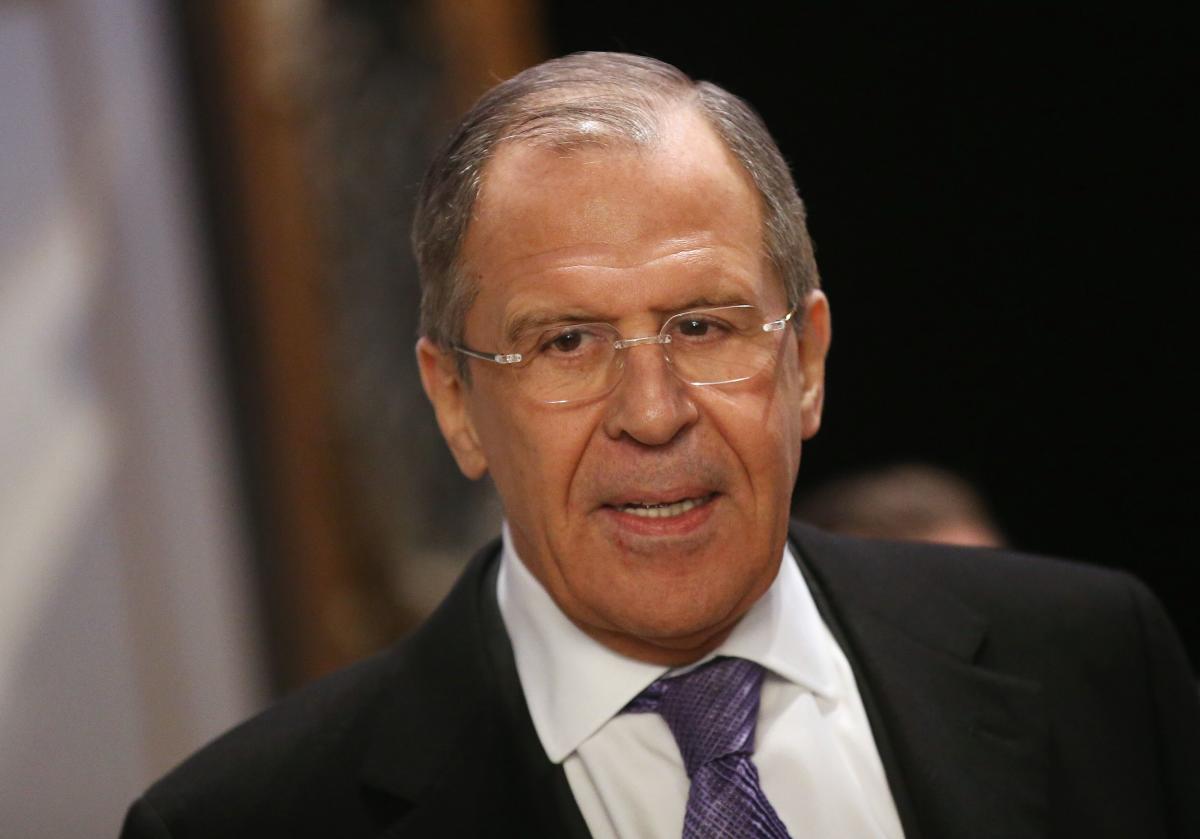(Bloomberg) — Russian Foreign Minister Sergei Lavrov expressed support for North Korea’s policies in a speech commemorating the 75th anniversary of the establishment of diplomatic ties between Pyongyang and Moscow, according to North Korea’s official Korean Central News Agency.
Most Read from Bloomberg
“Russia fully supports all the policies of the DPRK government” that leader Kim Jong Un has adopted to defend his national interests, KCNA cited Lavrov as saying, referring to North Korea by its formal name. Lavrov is in North Korea for his first visit in about five years.
Lavrov flew to Pyongyang on Wednesday from Beijing where he took part in the Belt and Road Initiative forum along with President Vladimir Putin, Russian Tass newswire reported. Lavrov will spend two days in North Korea, according to North Korean state media. The trip could also facilitate a possible visit by Putin after he accepted an invitation from Kim to make the journey to the isolated Asian state when the two met for a summit in Russia in September.
Kremlin spokesman Dmitry Peskov said details of Putin’s visit to North Korea will be discussed during Lavrov’s time in the country, Tass reported earlier.
On his last trip to Pyongyang in 2018, Lavrov met Kim to discuss a visit by the Russian president and delivered a letter from Putin, North Korea’s official media reported. The latest trip comes as US President Joe Biden is visiting Israel in a show of solidarity for the US ally after it was attacked by Hamas, although those plans have already begun to unravel after an explosion at a Gaza hospital.
The fact that Lavrov is following through on his promise to visit Pyongyang in the middle of a major crisis in the Middle East, where the Russians also have a vested interest, “is a strong indicator of how badly the Russians need North Korea right now,” said Rachel Minyoung Lee, a regional issues manager at the Vienna-based Open Nuclear Network.
“The ongoing Middle East crisis could well reinforce their thinking that they would make a good team in what they view as an increasingly fragmented world where the US is growing weaker,” said Lee, who worked as an analyst for the CIA’s Open Source Enterprise for almost two decades.
The Lavrov trip is part of a series of high-profile meetings between the neighbors that started in July when Defense Minister Sergei Shoigu traveled to Pyongyang for an anniversary marking the end of Korean War fighting in 1953. Shoigu was guided by Kim through a collection of North Korea’s latest weaponry and stood next to the leader at a military parade in Pyongyang as nuclear-capable ballistic missiles rolled down the capital’s streets.
That was followed by Kim’s trip to Russia, which was one of his longest ventures outside the country since he took power about a decade ago. Putin pledged to help Kim with his space program. This could finally allow North Korea to reach its long-held goal of placing spy satellites in orbit to keep an eye on US troops in the region.
The sanctions imposed by leading democracies on Putin and Kim have drawn the two closer in ways that could make the world a bit more dangerous. North Korea has huge stores of artillery shells and rockets that are interoperable with the weaponry Russia has deployed to the frontlines of Ukraine. While the US said the weapons won’t alter the battlefield, they could add to the grinding attacks from the Kremlin’s war machine on its neighbor.
North Korea and Russia have denied the US accusations.
North Korea might be looking at technology transfers of dual-use materials that could be delivered under the guise of helping its civilian space and nuclear programs, and still appear to be in accordance with international norms. But the materials could also be used to further North Korea’s ability to build missiles and nuclear bombs — in violation of United Nations Security Council resolutions.
Siegfried Hecker, a professor emeritus at Stanford University and one of the few American scientists who has participated in inspections of North Korea’s main nuclear facilities, said Russia could offer aid to Kim to get the Asian state’s long-planned experimental light water reactor operational under the premise of peaceful electric power generation.
This could be then repurposed for plutonium production, allowing North Korea to exponentially increase its stockpiles of the fissile material for use in weapons such as miniaturized warheads, Hecker said in an interview with the 38 North specialist website last month.
Concerns of illicit shipments picked up in late 2022 when the two restored their sole rail link, which had been shut for nearly three years during Kim’s Covid pandemic-related border closures. Russia and North Korea also share a coast to the east that is suspected by the UN and others of being used to send goods by sea, avoiding any possible interception in international waters.
White House National Security Council spokesman John Kirby told reporters this month that Pyongyang had provided 1,000 containers of military equipment and munitions. Kirby said the US was also concerned about Russia in turn providing assistance to North Korea.
Putin arrived in China this week for the Belt and Road Forum on his first foreign trip — aside from a visit to Kyrgyzstan — since a warrant for his arrest on alleged war crimes was issued by the International Criminal Court in March. He returned to Beijing on Tuesday in a diminished state compared to his last visit, needing the economic support of China and a route out of his self-inflicted political isolation.
Prior to arriving in North Korea, Lavrov held talks with top Chinese diplomat Wang Yi, and said the two leaders would discuss every aspect of bilateral relations, Russia’s Tass reported.
Read: Xi’s Diplomatic Gamble on Putin Leaves Both With Much to Lose
Russia’s reliance on China has reached into every facet of its economy in the 20 months since the invasion of Ukraine. With the West severing trade ties, China’s exports to Russia have jumped 57% so far this year.
China has been Kim’s biggest benefactor and a resumption of trade as Kim eases Covid border curbs could push the economy back to growth after two full years of contraction, Fitch Solutions said.
–With assistance from Brian Fowler.
(Updates with Lavrov speech via KCNA release.)
Most Read from Bloomberg Businessweek
©2023 Bloomberg L.P.








